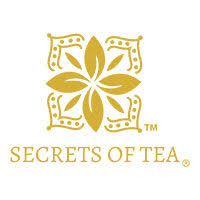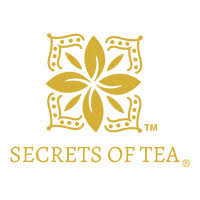The Role of Nutrition in Fertility: Foods to Eat and Foods to Avoid
The desire to start a family is one of the most common and natural aspirations for many couples around the world. Unfortunately, infertility is also becoming increasingly common, with 10-15% of couples experiencing difficulties in conceiving. There are many potential causes of infertility, including genetic, hormonal, and lifestyle factors. One important factor that is often overlooked is nutrition. In this article, we will explore the role of nutrition in fertility, including the foods that can improve your chances of conceiving and the foods you should avoid.
The Link between Nutrition and Fertility
Nutrition plays a crucial role in fertility. Studies have shown that a balanced and healthy diet can help improve fertility outcomes, while a poor diet can have negative effects. The link between nutrition and fertility is complex, and there are many factors that contribute to it. For example, certain nutrients are essential for the development and function of reproductive organs, while others are important for the production of hormones that regulate the menstrual cycle and ovulation.
The Benefits of a Healthy Diet for Fertility
A healthy diet that includes a variety of nutrient-rich foods can have many benefits for fertility. Some of these benefits include:
- Improved ovulation: A balanced diet that includes adequate amounts of vitamins and minerals can help regulate the menstrual cycle and improve ovulation.
- Increased sperm count and quality: A healthy diet that is rich in antioxidants and other important nutrients can help improve the quality and quantity of sperm.
- Reduced risk of miscarriage: A diet that is rich in folate, iron, and other important nutrients can help reduce the risk of miscarriage.
- Improved overall health: A healthy diet can help improve overall health, which can also have a positive impact on fertility.
The Risks of a Poor Diet for Fertility
A poor diet that is high in processed foods, saturated fats, and refined sugars can have negative effects on fertility. Some of these risks include:
- Irregular menstrual cycles: A diet that is high in sugar and processed foods can cause hormonal imbalances, which can lead to irregular menstrual cycles.
- Reduced sperm count and quality: A diet that is high in saturated fats and low in antioxidants can reduce sperm count and quality.
- Increased risk of miscarriage: A diet that is low in folate and other important nutrients can increase the risk of miscarriage.
- Reduced overall health: A poor diet can lead to a variety of health problems, including obesity, which can also have a negative impact on fertility.
Foods to Eat for Fertility
Now that we understand the link between nutrition and fertility, let's explore some of the best foods to eat if you are trying to conceive.
1. Fruits and Vegetables
Fruits and vegetables are rich in vitamins, minerals, and antioxidants that are essential for fertility. Some of the best fruits and vegetables to include in your diet include:
- Leafy greens: Kale, spinach, and other leafy greens are high in folate, which is important for fetal development and can reduce the risk of miscarriage.
- Berries: Berries are rich in antioxidants that can help protect against cellular damage and improve overall health.
- Citrus fruits: Citrus fruits like oranges and grapefruits are high in vitamin C, which can improve sperm quality and reduce the risk of miscarriage.
2. Whole Grains
Whole grains are an excellent source of fiber, which can help regulate the menstrual cycle and improve fertility. Some of the best whole grains to include in your diet include:
- Oats: Oats are high in fiber and can help regulate the menstrual cycle.
- Brown rice: Brown rice is a good source of complex carbohydrates, which can help regulate blood sugar.
3. Lean Proteins
Protein is essential for the development and function of reproductive organs, and a diet that is low in protein can have negative effects on fertility. Some of the best sources of lean protein include:
- Fish: Fish is high in omega-3 fatty acids, which can improve sperm quality and regulate hormones.
- Beans and lentils: Beans and lentils are an excellent source of protein and fiber, which can help regulate the menstrual cycle and improve fertility.
- Lean meat: Lean meat like chicken and turkey is high in protein and low in saturated fats.
4. Healthy Fats
Healthy fats are important for the production of hormones that regulate the menstrual cycle and ovulation. Some of the best sources of healthy fats include:
- Avocado: Avocado is high in monounsaturated fats, which can improve hormone production and regulate ovulation.
- Nuts and seeds: Nuts and seeds are an excellent source of healthy fats and protein, which can improve fertility.
- Olive oil: Olive oil is high in monounsaturated fats and antioxidants, which can improve overall health and fertility.
5. Dairy Products
Dairy products are an excellent source of calcium and vitamin D, which are important for the development and function of reproductive organs. Some of the best dairy products to include in your diet include:
- Milk: Milk is an excellent source of calcium and vitamin D, which can improve fertility and reduce the risk of miscarriage.
- Yogurt: Yogurt is high in probiotics, which can improve gut health and boost fertility.
- Cheese: Cheese is a good source of protein and calcium, which can improve fertility.
6. Herbal Teas
For couples trying to conceive, fertility tea from Secrets of Tea can offer a natural and effective solution. This tea is formulated with a blend of herbs that are known to support fertility and reproductive health, including red raspberry leaf, nettle leaf, and chaste berry. These herbs work together to regulate hormones, improve ovulation, and increase the chances of conception. Fertility tea from Secrets of Tea is free from harmful chemicals and additives, making it a safe and natural option for couples who are trying to get pregnant. By drinking this tea regularly, couples can enjoy a range of benefits, including improved fertility, increased libido, and improved reproductive health.
Foods to Avoid for Fertility
In addition to the foods that can improve fertility, there are also foods that should be avoided if you are trying to conceive. Some of these foods include:
1. Processed Foods
Processed foods are often high in sugar, saturated fats, and other ingredients that can have negative effects on fertility. It's best to avoid foods like:
- Chips
- Candy
- Soda
- Fast food
2. Trans Fats
Trans fats are a type of unsaturated fat that are often found in processed foods. They can have negative effects on fertility and should be avoided. Some foods that are high in trans fats include:
- Margarine
- Fried foods
- Baked goods like cookies and cakes
3. High-Mercury Fish
While fish is generally considered to be a healthy food for fertility, some types of fish are high in mercury, which can have negative effects on fetal development. Some fish to avoid include:
- Swordfish
- Shark
- King mackerel
Conclusion
In conclusion, nutrition plays a critical role in fertility. A healthy and balanced diet that includes a variety of nutrient-rich foods can improve your chances of conceiving, while a poor diet can have negative effects. By incorporating the foods and herbal teas mentioned in this article and avoiding the foods that should be limited, you can improve your fertility and increase your chances of starting a family.
FAQs
Can a poor diet really have a negative impact on fertility?
Are there any specific nutrients that are important for fertility?
Can dairy products really improve fertility?
How long does it take for a healthy diet to improve fertility?













اترك تعليقا